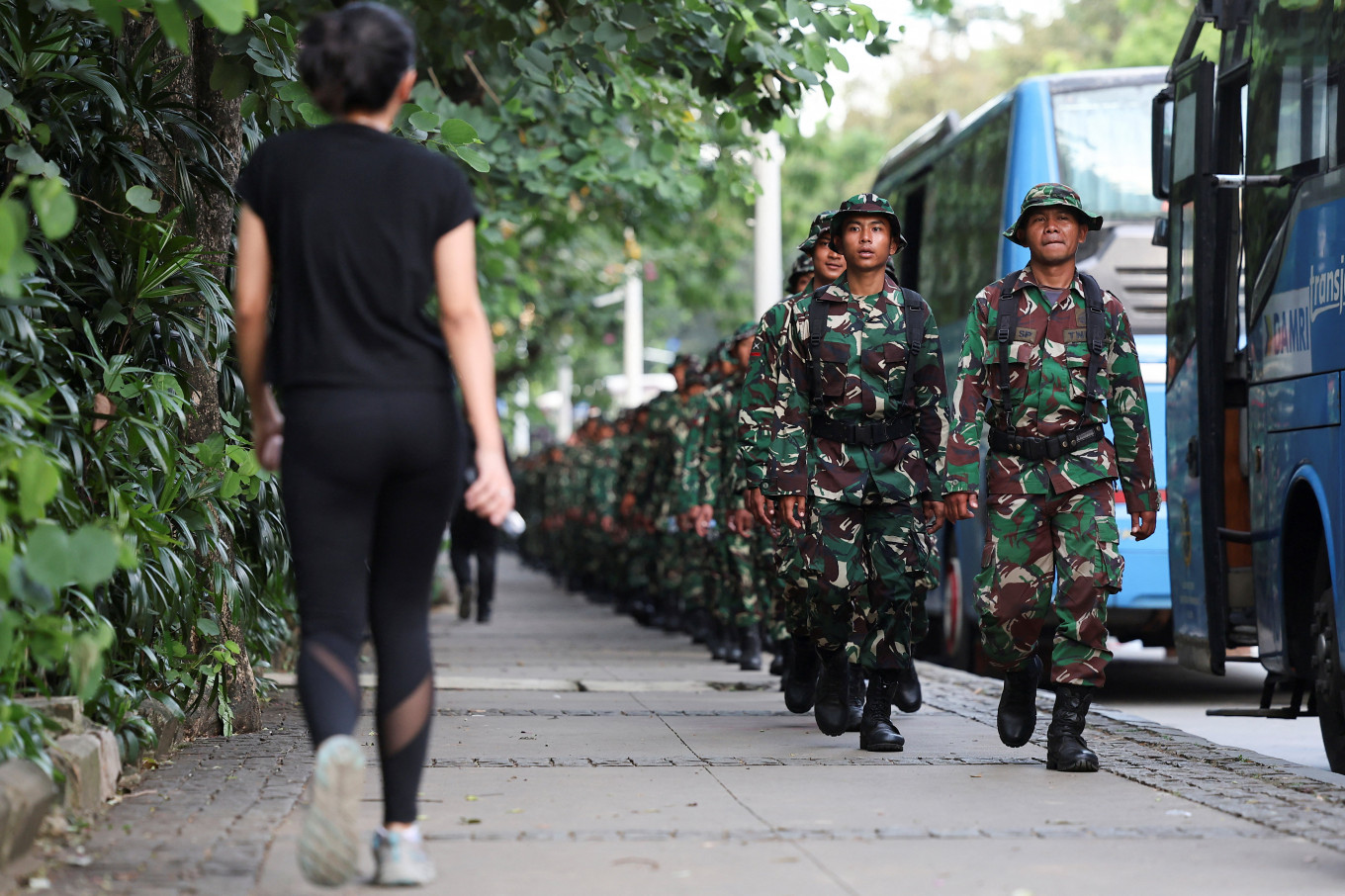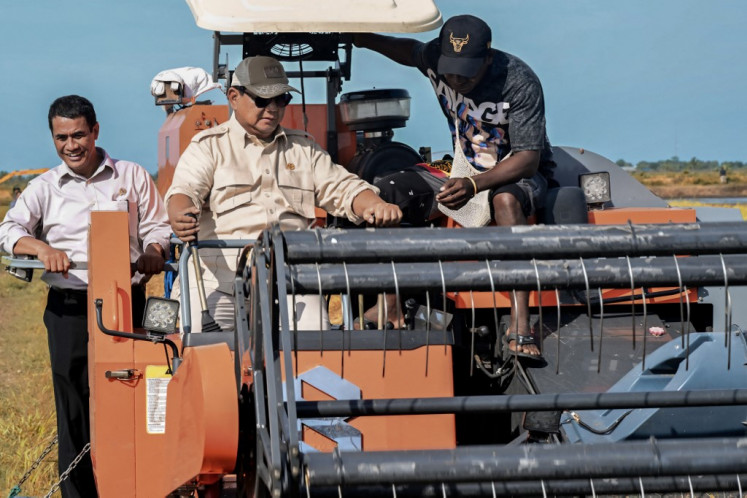Popular Reads
Top Results
Can't find what you're looking for?
View all search resultsPopular Reads
Top Results
Can't find what you're looking for?
View all search resultsThe lure of martial law
Many people still remember the sight of troops in camouflage on Jakarta's streets almost three decades ago, and that the current domestic security response to the ongoing protests isn't what they fought for.
Change text size
Gift Premium Articles
to Anyone
T
he trending phrase “state of emergency” on X is no coincidence, as it follows recent statements by President Prabowo Subianto linking the ongoing protests to attempted treason and his subsequent decision to issue the police and military a "blank check" to restore order.
Camo-clad soldiers seemed omnipresent as the Indonesian Military (TNI) began deploying its troops on Monday, at least in Jakarta. Dozens of armed troops on dirt bikes and in vehicles were seen passing major streets in Central Jakarta to the cheers of bystanders.
In comparison the police, which have been the target of public outrage due to their heavy-handed responses to the demonstrations, were nearly absent.
Jayakarta Military Command (Kodam Jaya) commander Maj. Gen. Deddy Suryadi said the large-scale patrols aimed to ensure public safety in the wake of the series of demonstrations that had turned violent. The Army meanwhile confirmed that the patrols were not limited to Jakarta, but were also deployed in major cities nationwide.
The military has dismissed fears that the mobilization of troops might lead to a state of emergency, when martial law can be declared to allow the TNI to take necessary measures to restore security and order, including seizing private assets and stifling civil liberties.
Deputy TNI chief Gen. Tandyo Budi Revita reaffirmed the military’s allegiance to the Constitution on Monday, brushing off speculation that the option of martial law was on the table.
The wave of demonstrations that erupted last Monday descended into rioting and looting in some areas. Angry mobs broke into and ransacked the homes of several government officials over the weekend, while an unidentified group attempted to attack an upmarket residential complex in Bekasi, West Java, where many ethnic Chinese reside. These violent actions signaled an escalation to a level of crisis that the National Police were not equipped to handle.
Just a little over two months since the 27th anniversary of the May 1998 tragedy, we have been struck by déjà vu.
Notwithstanding the TNI’s brushing aside a martial law scenario, the mass deployment of soldiers in our cities is a reality. The law allows for domestic deployment of the military to support the police’s public order operations.
One high-ranking official said no less than 76,000 troops were guarding Jakarta, which is likely why President Prabowo Subianto could take off to Beijing on Tuesday evening for his China visit after canceling the trip on Saturday.
There is no official data on the number of Kodam Jaya troops on the ground across Greater Jakarta, but according to its former commander in 2020, the provincial command had around 15,000 soldiers ready to support flood mitigation efforts in the capital.
The chatter about potential martial law has emerged, especially on social media, as a reaction to escalating tensions due to mass demonstrations in cities across country, particularly where mobs have vandalized public facilities and targeted government buildings, including those housing regional legislative councils. The arson attack on the Makassar Legislative Council on Aug. 29 claimed three lives.
A potential declaration of martial law as a means to restore public order only indicates authorities’ collective failure to identify and resolve the root cause of the protests.
People have take to the streets to vent their disappointment, if not anger, with officials' poor performance and behavior, especially of those elected to represent their interests and aspirations in government.
The people's struggle to make ends meet contrasts sharply with the privileges their representatives enjoy, such as a monthly housing allowance around 10 times the minimum wage. This yawning gap, combined with some officials’ arrogance and lack of empathy and the police’s use of excessive force, has fueled the unrest.
Their aspirations for fair wages and just governance are in line with the civil liberties protected by the 1945 Constitution, and should not warrant ceding responsibility for public order to the military, let alone give soldiers a full mandate to maintain domestic security, however demoralized the police might be at present.
Regulation in lieu of Law No. 23/1959 on a state of emergency, which remains effective today, states that martial law is to be declared only in the event of a large-scale rebellion, natural disaster or war that threatens the nation’s very existence.
President Prabowo, a former Army general, has already undermined civilian supremacy by appointing more TNI officers to positions in the government and at state-owned enterprises. A military government is the last thing the greater public wants from his administration.










